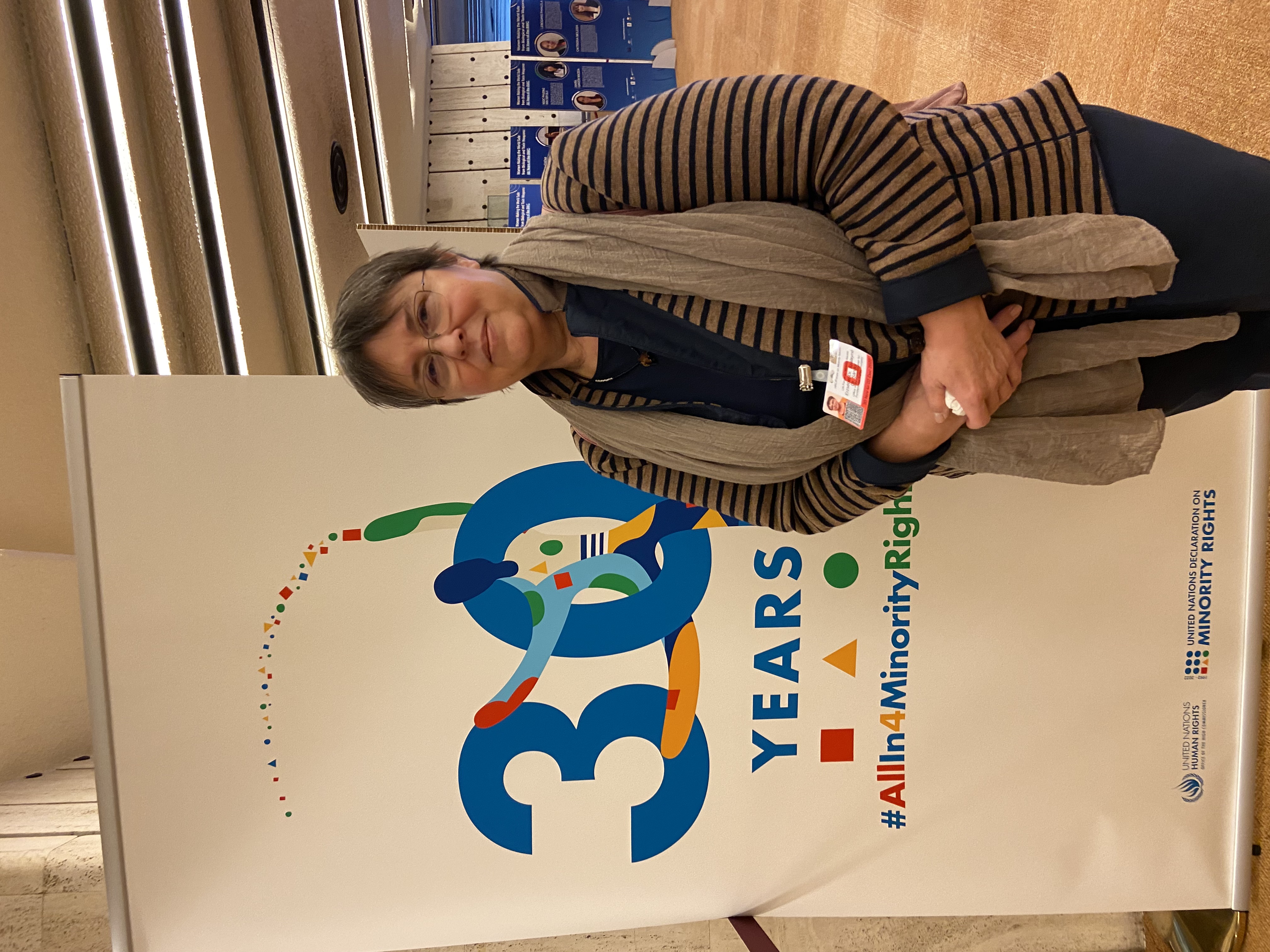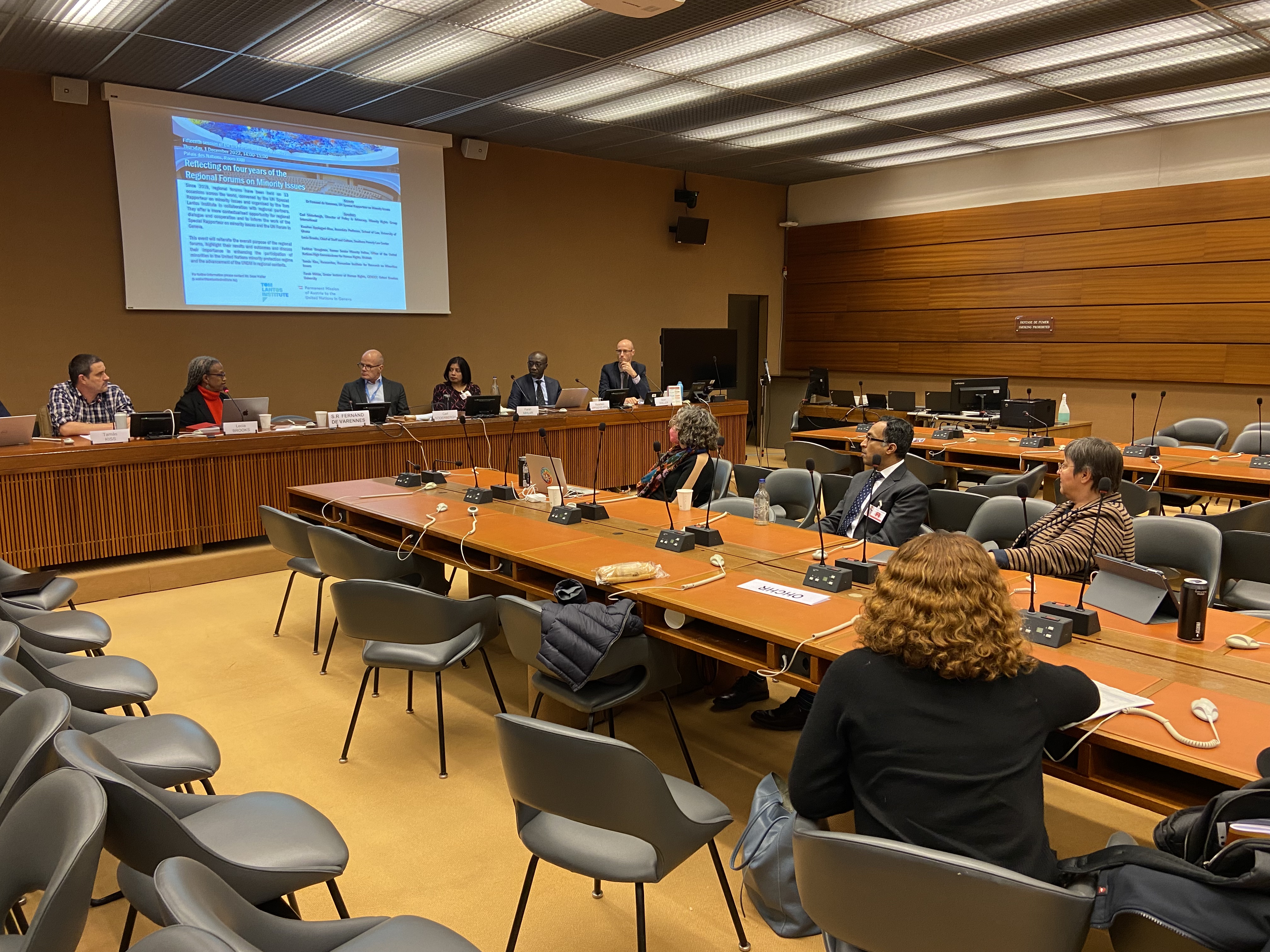15th session of the UN Forum on Minorities in Geneva - NJBH-EN
null 15th session of the UN Forum on Minorities in Geneva
The 15th session of the UN Forum on Minorities, a key event in international minority protection, was held in Geneva with great interest. Every year, the Minority Ombudsman participates as a key expert at the UN Forum on Minorities, which took place from 30 November to 2 December this year at the Palais des Nations in Geneva.
The importance of the event is underlined by the fact that 2022 will also mark the 30th anniversary of the UN Declaration on the Rights of Minorities. In addition to the official technical programmes, the Forum provided an opportunity for bilateral and multilateral discussions between international experts, the exchange of good practices and the development of new projects.
The Human Rights Council, the successor to the Commission on Human Rights, was established in 2006 by UN General Assembly Resolution 60/251. In the following year, the Human Rights Council established the Forum on Minorities (hereinafter "the Forum") (resolution 6/15), which is tasked with promoting dialogue and cooperation on issues affecting minorities and providing thematic and expert assistance to the UN Special Rapporteur on Minorities (hereinafter "the Special Rapporteur"). In addition to the above, the Forum shall identify and analyse best practices, challenges, opportunities and initiatives for the further development of the Declaration on the Rights of Persons Belonging to National or Ethnic, Religious and Linguistic Minorities (1992, General Assembly resolution 47/135) (hereinafter referred to as the Declaration). Resolution 6/15, adopted on 28 September 2007, was renewed by Council Resolution 19/23 of 23 March 2012, which reaffirmed the role of dialogue and cooperation and gave it the task of analysing best practices, challenges and opportunities and developing optimal ways to implement the rights enshrined in the Declaration. It also provided a clear framework for the role and responsibilities and powers of the Special Rapporteur and included him in the collective decision-making process.

The Forum, which takes place over two working days, is held once a year, always on different topics in line with international trends and current issues. The Special Rapporteur is responsible for the organisation and conduct of the Forum, and for drafting and submitting recommendations to the Human Rights Council. The work of the Panel is open not only to States but also to any UN body, specialized agency, regional international organizations and cooperation in the field of human rights, national human rights institutions, NGOs with consultative status in the UN Economic and Social Council and international experts on minorities. At the end of each session, the Forum adopts thematic recommendations for further consideration by the Human Rights Council.
In 2022, as in 2021, recommendations from four regional forums in the Americas, Africa and the Middle East, Asia and the Pacific, and Europe and Central Asia will be published to reflect regional perspectives and specificities more explicitly. The regional forums were organised by the Special Rapporteur in cooperation with the Tom Lantos Institute.
Each year, experts who come to the event will learn how to channel their work into the UN system and procedures, and share their domestic good practices, which states are free to adopt and apply. The Forum can also help partners to look at the problems of their own communities from multiple perspectives through interaction and comparison with communities in different situations.
The Forum theme for 2022 is "Review. Rethinking. Reform. 30th Anniversary of the UN Declaration on the Rights of Minorities". The Forum analysed the practices, challenges, opportunities and initiatives related to conflict prevention and the protection of the human rights of minorities, in line with the principles and rights enshrined in the UN Declaration on the Rights of National or Ethnic, Religious and Linguistic Minorities, which is 30 years old this year, and other relevant international documents.

The event can be watched on this link and on the related pages.
The Minority Ombudsman held a number of professional discussions with national and international experts on practical issues and the future of rights protection, including meetings with Elise Cornu, head of the professional secretariat of the Council of Europe's Minority Monitoring Committees, experts and trainees of the organisation, Lorán Vincze, President of FUEN, and Ferenc Kalmár, Ministerial Special Representative for the Development of Hungary's Neighbourhood Policy. As a highlight of her programme, she also met with the Head of Hungary's Permanent Mission to the UN and WTO, Ambassador Extraordinary and Plenipotentiary Margit Szűcs, with whom she discussed in detail current trends in international standards on minority protection and possibilities for further cooperation.